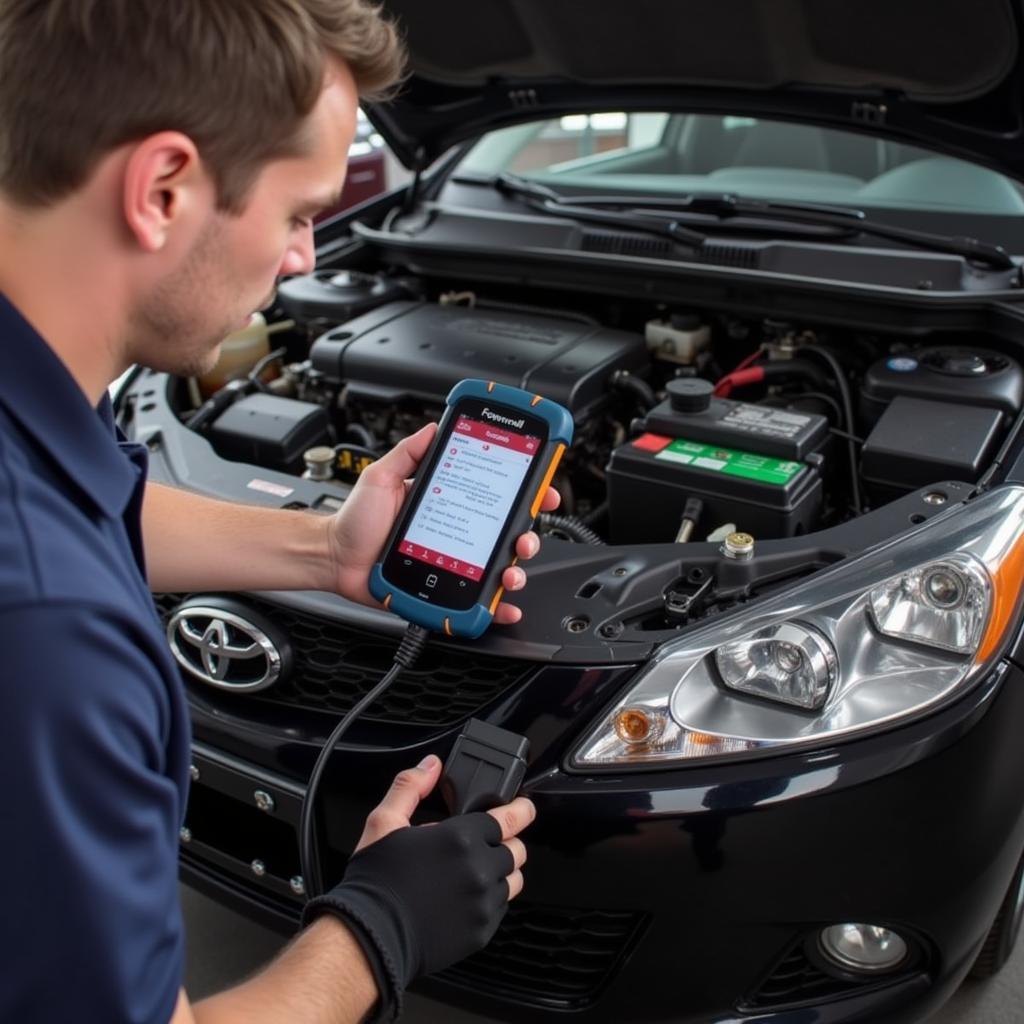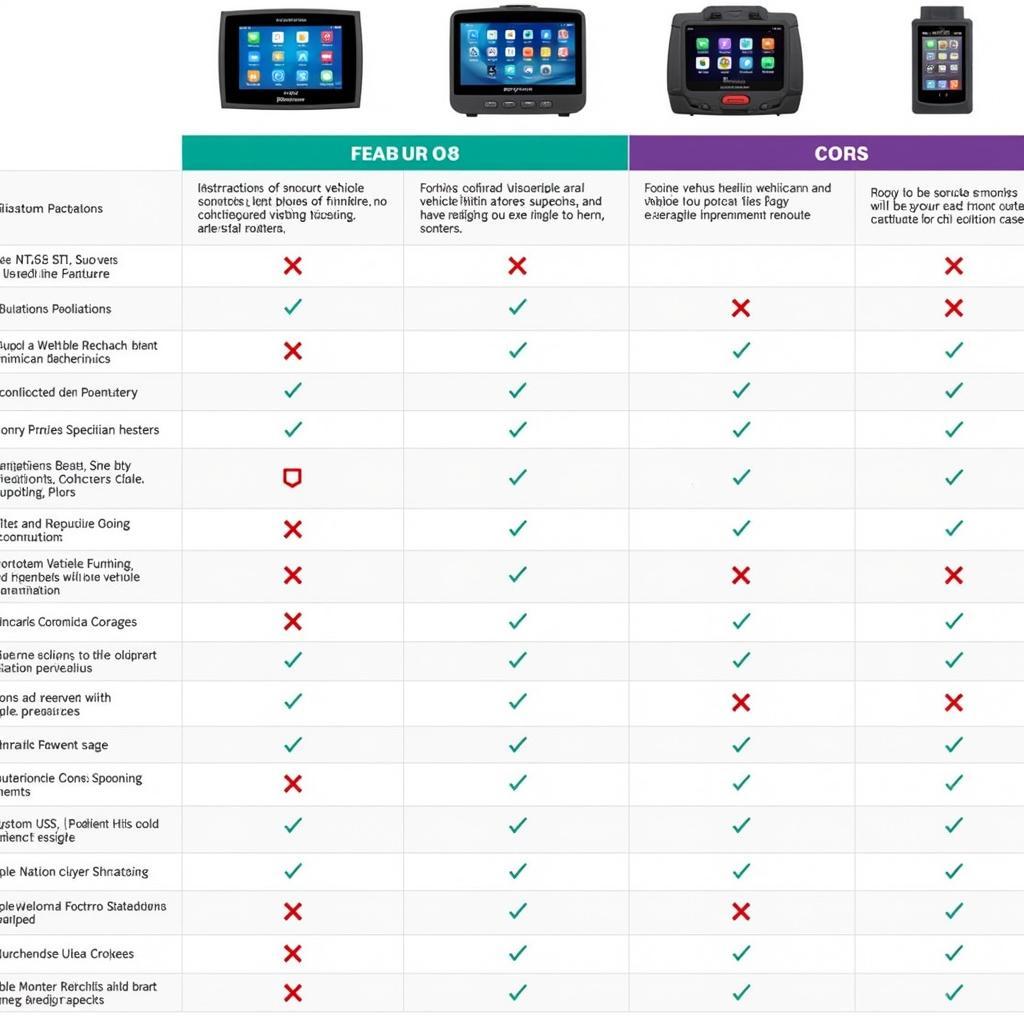Milford Foxwell University Of Maryland is not a recognized institution. When searching “Milford Foxwell University of Maryland,” the intent is likely to find information about automotive technology programs, potentially focusing on diagnostic tools and software, given the association with the brand “Foxwell.”
Let’s explore the potential educational pathways and resources related to automotive technology in Maryland, keeping in mind the sophisticated diagnostic tools available today.
Navigating the World of Automotive Technology in Maryland
The automotive industry is rapidly evolving, with intricate electronic systems becoming standard in even the most basic vehicles. This shift demands a new breed of automotive technicians – professionals who are as comfortable with software and diagnostics as they are with wrenches and engines.
If you’re in Maryland and seeking to join this exciting field, you’ll need access to high-quality training and cutting-edge resources. While “Milford Foxwell University of Maryland” may not exist, several paths can equip you with the skills needed to excel.
Choosing the Right Automotive Program: A Guide
[image-1|automotive-technology-program-maryland|Automotive technology program in Maryland| A diverse group of students working on a car engine in an automotive technology lab setting. Modern diagnostic equipment is visible in the background, highlighting the blend of traditional mechanics and advanced technology in the field.]
Community Colleges: Your Gateway to Automotive Excellence
Maryland boasts a robust network of community colleges offering associate degrees and certificate programs in automotive technology. These programs often have:
- Hands-On Experience: Get your hands dirty in real-world shop environments, working on actual vehicles.
- ASE Certification Preparation: Many programs align their curriculum with Automotive Service Excellence (ASE) certification tests, the industry standard for competency.
- Affordable Education: Community colleges often provide a more cost-effective route compared to four-year universities.
Four-Year Universities: Specialized Degrees for Advanced Roles
For those aiming for leadership positions or roles in research and development, a four-year degree in mechanical engineering with a focus on automotive systems could be the answer. This path provides a deeper understanding of:
- Automotive Design and Engineering: Learn the principles behind vehicle design and how different systems integrate.
- Emerging Technologies: Gain exposure to cutting-edge advancements in electric vehicles, autonomous driving, and more.
- Research Opportunities: Participate in research projects pushing the boundaries of automotive technology.
Mastering Automotive Diagnostics: The Foxwell Connection
The search term “Milford Foxwell University of Maryland” suggests an interest in advanced automotive diagnostics. While the university might not exist, Foxwell is a recognized name in the industry, known for its sophisticated diagnostic tools.
Foxwell Scan Tools: Your Gateway to Vehicle Communication
[image-2|foxwell-scan-tools-for-diagnostics|Foxwell Scan tools for automotive diagnostics| A close-up shot of a mechanic’s hand using a Foxwell scan tool plugged into a car’s OBD-II port. The tool’s screen displays diagnostic data, illustrating its role in identifying and troubleshooting vehicle issues.]
Modern vehicles are equipped with complex electronic control units (ECUs) that manage everything from engine performance to safety features. Foxwell scan tools allow technicians to communicate with these ECUs, retrieving valuable data to:
- Read and Clear Diagnostic Trouble Codes (DTCs): Identify the root cause of warning lights and performance issues.
- View Live Data Streams: Monitor real-time sensor readings to analyze system performance and pinpoint malfunctions.
- Perform Advanced Functions: Access specialized functions like ECU coding, key programming, and component activation.
Choosing the Right Foxwell Scanner: A World of Options
Foxwell offers a diverse range of scanners catering to different needs and budgets. When selecting a scanner, consider:
- Vehicle Coverage: Ensure the scanner supports the makes and models you’ll be working on.
- Functionality: Determine the level of diagnostic depth you require, from basic code reading to advanced programming.
- Software Updates: Regular software updates are crucial to stay current with the latest vehicle models and technologies.
Bridging the Gap: Resources for Aspiring Automotive Professionals
While formal education is essential, several other avenues can enhance your automotive technology expertise:
ASE Certification: The Mark of Excellence
Earning ASE certifications demonstrates your competency to potential employers and customers. ASE offers certifications in various areas, including engine repair, brakes, electrical systems, and more.
Online Training Platforms: Knowledge at Your Fingertips
Numerous online platforms offer specialized courses in automotive diagnostics, repair procedures, and emerging technologies. These self-paced courses can supplement your formal education and allow you to explore specific areas of interest.
Automotive Forums and Communities: Tap into Collective Expertise
Online forums and communities dedicated to automotive technology can be valuable resources for troubleshooting, sharing knowledge, and staying updated on industry trends.
Conclusion: Gearing Up for Success in Automotive Technology
While “Milford Foxwell University of Maryland” might not be a tangible institution, the pursuit of automotive technology excellence in Maryland is very much alive. By combining the right education, hands-on experience, and continuous learning, you can navigate the evolving automotive landscape with confidence.
For expert advice and access to cutting-edge diagnostic tools, connect with us at ScanToolUS. Call us at +1 (641) 206-8880 or visit our office at 1615 S Laramie Ave, Cicero, IL 60804, USA. We’re here to support your journey into the exciting world of automotive technology!



Pingback: Dr. Foxwell: Revolutionizing Automotive Diagnostics at the University of Maryland - Car Scan Tool